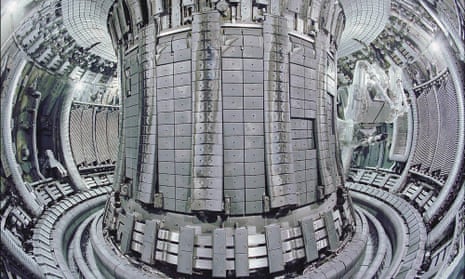Member states are already competing among themselves to have British-based EU agencies and research centres relocated to their countries following the Brexit vote, a former president of the European commission has disclosed.
Romano Prodi, who led the commission between 1999 and 2004, told the Observer that EU negotiators were being put under pressure to make decisions on transferring key centres, which are both major employers and hubs of expertise. He revealed details of the behind-the-scenes manoeuvres as the leaders of two major organisations voiced their fears over the future.
The European medicines agency’s executive director, Guido Rasi, has written to former health minister Norman Lamb about his “concerns” over the “repercussions of so-called Brexit on science and medical research”. He added that his agency’s future – and that of his 890 employees – was in the balance and depended “on the future relationship between the UK and the EU”.
Professor Ian Chapman, the newly appointed chief executive of the UK nuclear fusion programme at the Culham centre in Oxfordshire, which hosts the EU’s flagship research project called the Joint European Torus – the largest magnetic fusion experiment in the world – said that, while the commission had been “positive” in talks about the medium term, there was a lack of clarity over the future. “We are worried about what Brexit means,” Chapman said. “We just have to get on and continue to do business until the UK government gives any clarity about what their position is and what is actually happening. We are awaiting that.”
Prodi, a two-time Italian prime minister, said that he knew the commission negotiators, led by former French government minister Michel Barnier, “very well” and that he was aware that the lobbying to steal away the agencies from British shores had begun.
“Everybody fights now to have the headquarters of the agencies that are now in the UK,” he said. “If you are a negotiator you have people pushing you. The governments, Italian, French. The cities are pushing you, saying: ‘my city is the best for pharmaceuticals in the world’. Britain is leaving a big heritage.”
Lamb, a minister until last year, said that the development would be a “hammer blow” for British jobs and research. “While the divided Tory government struggles to find a workable plan for Brexit, other European countries are already fighting over the spoils,” he said. “Britain’s thriving pharmaceutical industry would be dealt a hammer blow through the loss of the European medicines agency, which is crucial for attracting foreign investment. Theresa May must clarify how she will secure vital economic interests and give the British people a say over the final Brexit deal.”
Prodi said he believed the European commission would be tough on the UK in its negotiations, but called for May to trigger article 50 as soon as possible. “The situation is very clear. Brexit is Brexit, as your prime minister has told us,” he said. “And it is both in the British interest and even more in the European interest to clarify the situation soon. The uncertainty is the biggest danger to Europe, to Britain and to all of us.
“What happens to the research groups, to the students? There is a question mark. And it is not in the interest of the UK to have a question mark.
“They [the commission negotiators] understand that the institution to which they belong will be totally destroyed with uncertainty. From the commission point of view, they are obliged to be less generous, to be not generous.”
Prodi, a former professor of economics, said he believed that trade between Britain and the EU member states would not be greatly affected by the Brexit vote, but he warned of a hit to foreign direct investment in the UK. “When it comes to the new headquarters of non-European countries – Chinese companies for their European branch, for example – a decreasing number of them will choose Britain,” he said. “In industry or manufacturing, the new decision will in some way have less preference for the UK.
“There is a question mark over the City. My opinion is that the City will lose a small part of it, but that it is powerful because of its skills, not because it belongs to the market. So I don’t think there will be an earthquake in the City. You could lose some headquarters. They could go to Amsterdam or something of this type. But London will maintain the skills, and that’s more important in financial services.”

Comments (…)
Sign in or create your Guardian account to join the discussion